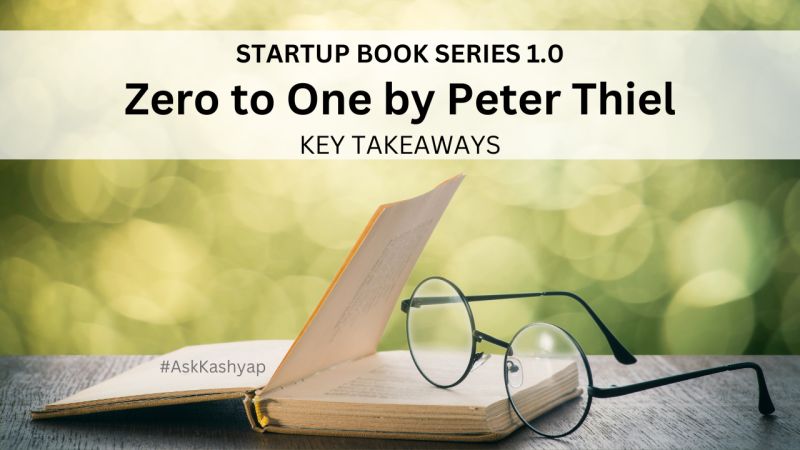
“Customers won’t care about any particular technology unless it solves a particular problem in a superior way”, said Peter Thiel, the author of “Zero to One” – a book about building companies that create new things, rather than just copying what already exists.
Here are some key takeaways from the book:
- The Power Law: In any industry, a few companies will dominate and capture most of the value. The goal of a startup should be to become one of those dominant companies.
- Creating Value: The best companies are not just competing, they are creating something new. Creating a new technology or a new market is much more valuable than just competing in an existing market.
- Building Monopolistic Business: A successful startup needs a unique and valuable idea that can’t be easily replicated. This is what Thiel calls a “secret” or a “monopoly.” A monopoly exists when a company has something so unique and valuable that it can charge whatever it wants for it. Thiel encourages startups to focus on creating a monopoly by developing proprietary technology or a unique business model.
- Right Timing: Thiel stresses the importance of timing: the right time to start a company is when a new technology or market is just beginning to emerge.
- Competent Team: The founder should be a visionary who is capable of inspiring and leading a team. The team should be made up of people with complementary skills who share the same vision.
- Importance of Sales & Distribution: Thiel also discusses the importance of sales and distribution, arguing that these factors are often overlooked by startups. If your product requires advertising or salespeople to sell it, it’s not good enough: technology is primarily about product development, not distribution.
- The Most Important Question: Thiel argues that the most important question a startup can ask itself is: “What valuable company is nobody building?” This question forces startups to think creatively about new and innovative ideas.
Finally, according to Thiel “Every moment in business happens only once. The next Bill Gates will not build an operating system. The next Larry Page or Sergey Brin won’t make a search engine. And the next Mark Zuckerberg won’t create a social network. If you are copying these guys, you aren’t learning from them.”
